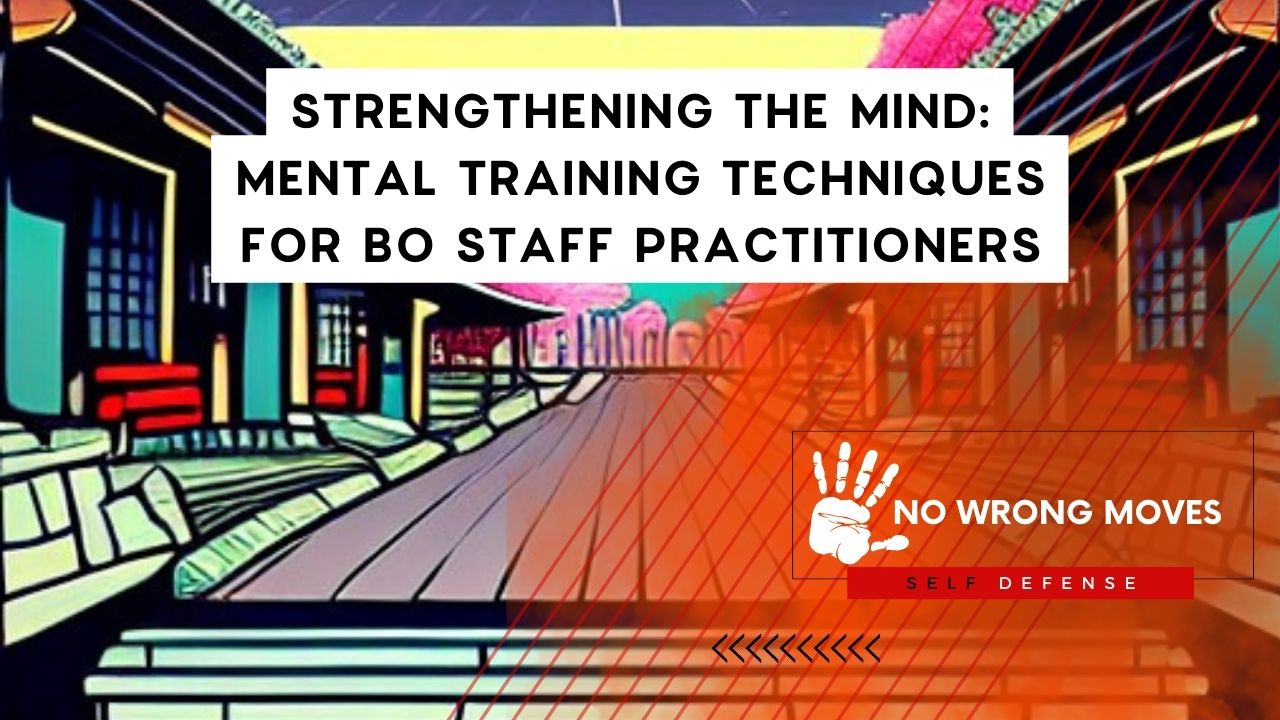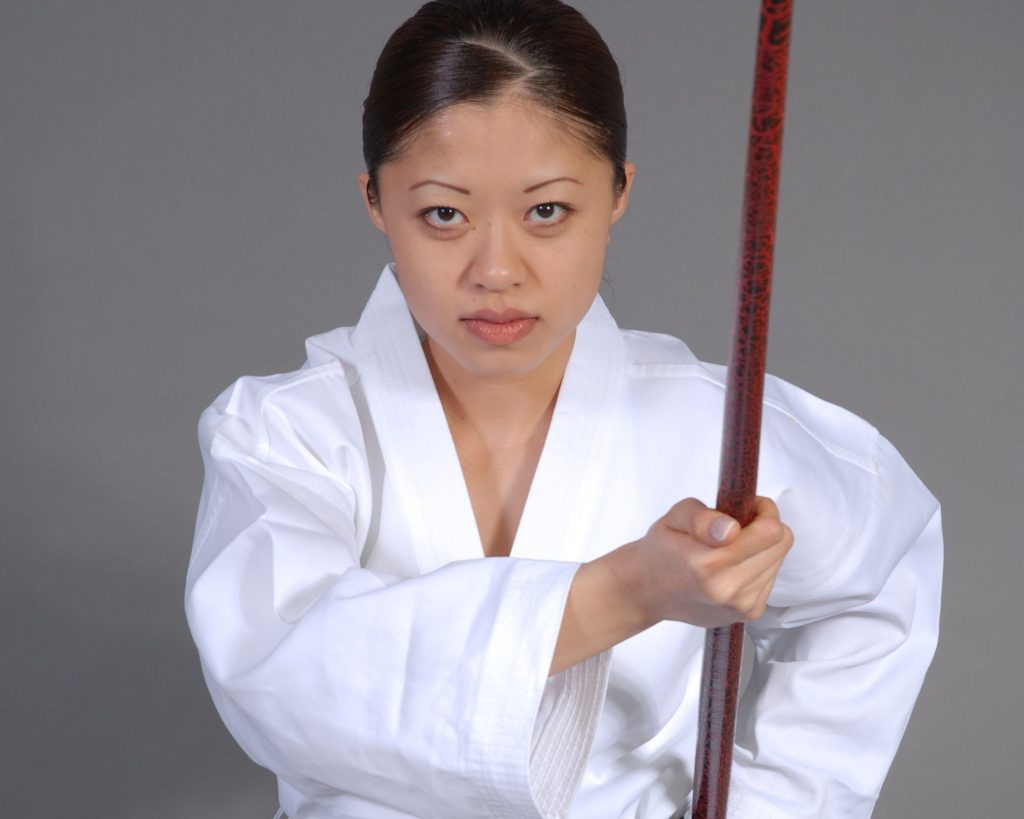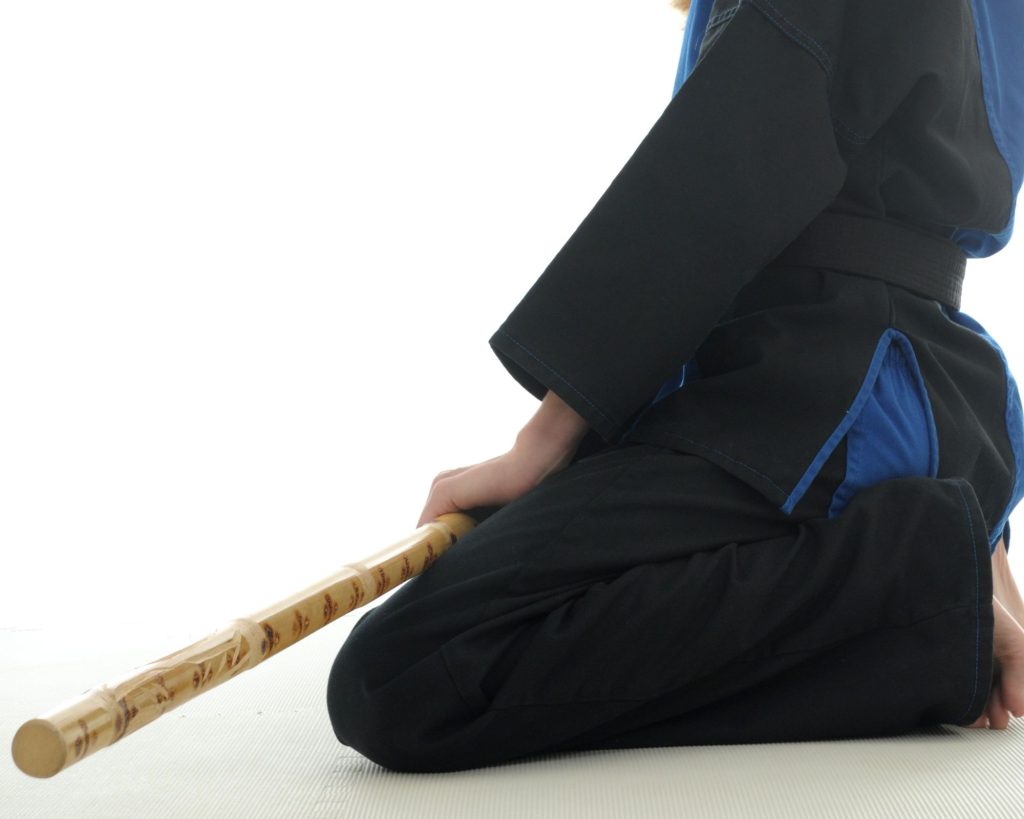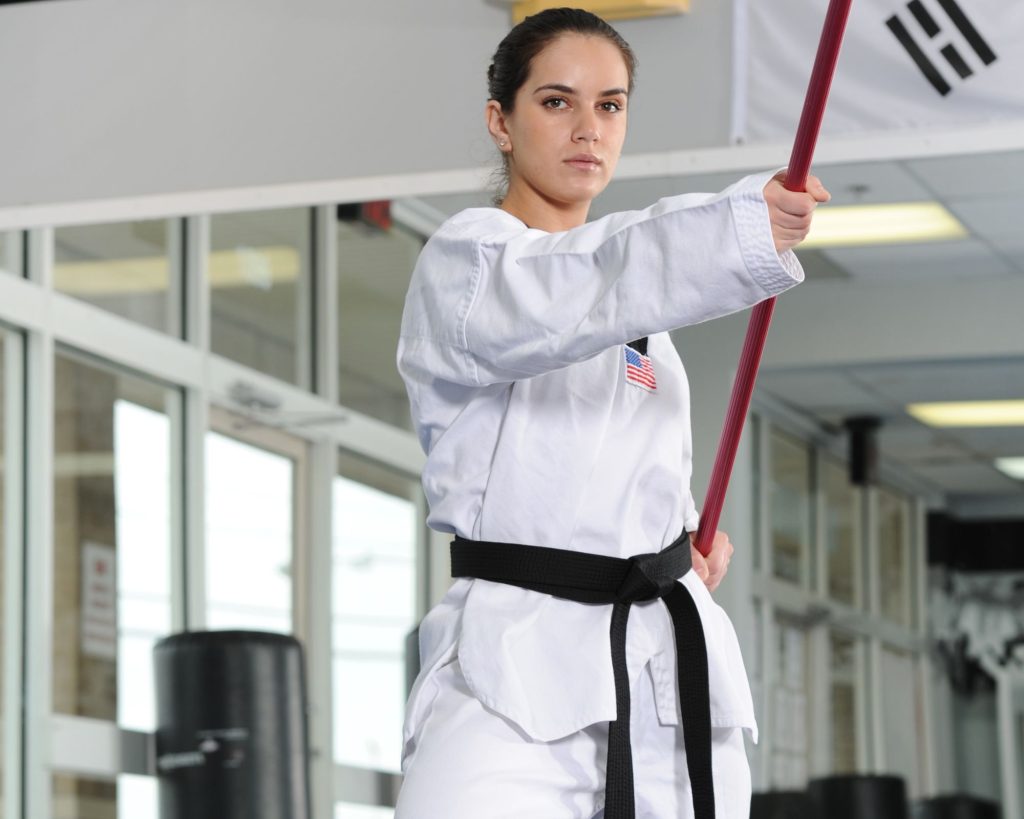
- Establishing a Mind-Body Connection in Bo Staff Training
- Developing Strong Mental Discipline and Focus
- Developing Strong Mental Discipline and Focus
- Breathing Techniques for Enhanced Concentration and Relaxation
- Building Confidence and Overcoming Fear of Failure
- Embracing Mindfulness to Improve Presence and Awareness During Training
- The Role of Positive Self-Talk in Enhancing Performance
- Incorporating Meditation Practices to Sharpen Mental Clarity
- How to Get Started with Meditation
- Setting Effective Goals for Continuous Improvement in Bo Staff Mastery
- Cultivating Resilience through Mental Toughness Exercises
Are you on a quest to elevate your mental prowess in the realm of bo staff? Well, my friend, you've landed at just the right spot!
As an adept practitioner with years of hands-on experience and comprehensive research into psychological training approaches under my belt, I assure you that possessing a robust mindset is as crucial as physical dexterity.
In this article, I'll unveil some tried-and-tested mental conditioning techniques specifically designed for bo staff enthusiasts like yourself.
You'll discover how embracing fundamental psychological concepts such as visualization, affirmative self-dialogue, and concentration can propel your success across all facets of your practice.
And we mean that, whether it be mastering new maneuvers, refining precision and swiftness, vanquishing fears of failure or errors, acing intricate forms or amplifying performance amid pressure. If that has piqued your interest, then let's waste no time and plunge right in!
Establishing a Mind-Body Connection in Bo Staff Training

The art of Bo Staff training is one that demands the utmost in concentration and focus. The martial arts weapon, which originated from Okinawa, Japan, requires those who wield it to practice intense physicality as well as an impeccable level of mental acuity.
This makes for a difficult balance between mind and body for any student attempting to master the staff. Fortunately, there are certain practices that can be employed to help them develop this connection.
First and foremost, the student must learn how to breathe properly while training with their Bo Staff. This means taking slow measured breaths that allow their muscles to relax so they can move more fluidly through each form or kata.
Additionally, focusing on maintaining good posture during sparring sessions will also ensure proper breathing technique since poor posture can lead to shallow breathes which don’t provide enough oxygen for optimal performance.
Secondly, visualizing your movements before executing them is another great way of developing a strong mind-body connection while training with the Bo Staff.
Imagining yourself performing each strike or maneuver sets you up both mentally and physically allowing you prepare better when it comes time to actually execute these techniques in real life scenarios.
On top of this visualization practice should be supplemented with positive self talk; repeating affirmations like “I am powerful” or “I have confidence” will prepare you mentally for success.
- Breathing: Take slow measured breaths so your muscles stay relaxed
- Posture: Maintain good posture while sparring so your breath remains steady
- Visualization: Visualize yourself preforming strikes before trying it out in real life scenarios
Developing Strong Mental Discipline and Focus

Mental discipline and focus are essential to success in work, relationships or any other area of life. It can be defined as the ability to stay focused on a task or goal despite distractions or obstacles that may arise.
Developing strong mental discipline and focus requires effort and commitment but will pay off with improved productivity, better decision making skills, and an overall sense of satisfaction.
Acknowledge Your Goals
The first step in developing strong mental discipline and focus is to acknowledge your goals clearly. Identify what you want to accomplish in terms of short-term objectives as well as long-term ones.
This will provide direction for future decisions and help you keep your eyes on the prize when times get tough.
Knowing why you’re working toward something also helps motivate you during difficult moments when it feels like progress has stalled out.
Create a Plan
After setting your targets, create an actionable plan detailing how you intend to reach them. Break down large tasks into smaller steps so they’re easier to manage mentally – this takes some of the pressure off because there’s no one massive mountain looming ahead.
Add regular checkpoints along the way so that if any changes need making then adjustments can be done quickly.
- Set reasonable deadlines.
- Manage expectations.
Work Consistently
To ensure sustained progress towards achieving these goals, it is necessary to work consistently on them every day - even if just for a few minutes at a time - rather than attempting huge bursts.
- Checklists are great tools for keeping track of progress made.
- Reward yourself periodically for reaching milestones achieved.
By approaching tasks with consistency rather than intensity, developing strong mental discipline becomes much more manageable since results come from steady effort not just initial drive alone.
Developing Strong Mental Discipline and Focus

Visualization is an incredibly powerful technique that can be used to access creative and insightful thought. As a form of meditation, it is often employed by those looking to relax and find inner peace, while also honing their concentration skills.
It involves using the mind’s eye to imagine a scene, then walking through that scene in one’s head with emotional depth.
Through this process, we are able to gain insights into our own behavior and emotions – including where we have been, who has helped us along the way, or what our goals for the future might be.
Breathing Techniques for Enhanced Concentration and Relaxation

Breathing Exercises
Breathing exercises are an effective way to enhance concentration and relaxation. For many, breathing techniques can be used as a form of meditation, providing peace and calm amidst the chaos of our daily lives.
There are multiple different types of breathing exercises that provide different benefits depending on what you’re trying to achieve.
Box Breathing
One popular technique is called box breathing. During this exercise, individuals focus their attention on taking slow breaths in and out while counting each one aloud or silently in their head.
This helps bring awareness to your breath and encourages deeper inhalations which can improve overall oxygen intake into the lungs. Box breathing creates a smooth rhythm with your breath which can help relax both the body and mind for enhanced concentration.
- First, inhale for four counts.
- Pause at the top for four counts.
- Exhale for four counts.
- Pause at the bottom for four counts.
By continuously repeating this pattern it allows individuals to establish control over their breath focusing solely on its flow rather than any intrusive thoughts or worries that come up during this process.
Alternate Nostril Breathing
Another useful exercise is known as alternate nostril breathing which involves blocking one nostril while inhaling through the other then switching sides when exhaling.
This type of exercise has been shown to reduce stress levels by balancing out air pressure between both sides of your nose thus calming down your entire system allowing them to better concentrate on whatever task they may have ahead of them.
Mindful Breathing Technique
Start by blocking off one nostril with either your index finger or thumb (whichever feels more comfortable), then inhale deeply through the open nostril. Switch sides and repeat these steps four times, pausing before moving onto the next round. By engaging in this activity regularly, you will find yourself feeling calmer, clear-headed, focused, and more relaxed, making it easier to concentrate even if surrounded by distractions.
Building Confidence and Overcoming Fear of Failure

Fear of failure is common during the practice and learning process, and it can manifest in many forms. Start small by setting achievable goals that are not too far out of reach.
By breaking down larger tasks into smaller ones, you can feel more capable and confident about taking on bigger challenges.
Once those smaller goals have been achieved (or even partially achieved), reward yourself for all your hard work. Share your accomplishments with others, as recognizing our successes helps boost our self-esteem.
If you find yourself struggling with particular aspects or techniques within your craft, don't be afraid to ask questions. Seeking help demonstrates strength rather than weakness, and often fellow practitioners will offer advice that can help us broaden our skillset immensely.
Remember why you chose this path in the beginning and stay focused on long-term goals. Celebrate every victory, no matter how small, stay positive even when progress seems slow, and focus on self-improvement rather than perfectionism.
Embracing Mindfulness to Improve Presence and Awareness During Training

As an athlete, it's essential to stay focused and alert during training. Mindfulness is all about being present in the moment and fully aware of what's happening around you. Here are some techniques you can use to improve your presence and awareness while working hard:
Understanding Your Thoughts
Take some time to observe your thoughts without judgment. Becoming familiar with our own thought patterns helps us notice when we're getting derailed from our desired focus. It also allows us to make more conscious decisions in these moments rather than resorting to autopilot responses that may not serve us well.
Using Breath Work
Breathing exercises are another powerful way to bring mindfulness into your training sessions. During practice, try counting each inhale for four seconds (1–2–3–4) then exhale for six seconds (1–2–3–4–5–6).
You'll find this type of breath work helps keep your mind clear so that all energy is put towards staying present during workouts.
Learning From Experiences
Finally, use every experience as an opportunity for learning something new about yourself or how you do things best. A great way to go deeper in reflecting on experiences is journaling.
Writing down whatever comes up, no matter if it's positive or negative, can give insight into areas where improvement might be needed, which could ultimately lead closer towards achieving goals faster.
The Role of Positive Self-Talk in Enhancing Performance

Positive self-talk is a powerful tool to enhance performance in any field. It involves consciously shifting our internal dialogue from negative to positive and speaking kindly and realistically to ourselves.
When done correctly, it can increase motivation, confidence, concentration and performance levels in many areas of life.
Motivation
Positive self-talk helps us stay motivated by reminding us why we are doing something or why it’s important for us to get the job done.
It also serves as an encouragement when things become difficult or challenging. We can use positive affirmations such as “I am capable of achieving this goal” or “this will be well worth the effort” to keep pushing forward, regardless of any difficulties that may arise.
Confidence
Self-confidence is a critical factor that impacts our ability to achieve goals. When we doubt ourselves, those negative beliefs often become self-fulfilling prophecies, leading to disappointment and failure.
However, by using positive language such as "I am capable of learning new skills quickly" or "I have all I need inside me already," we increase our chances of success. Confidence breeds determination and resilience, even in the face of obstacles.
Positive self-talk also helps us to focus on what we want to achieve rather than what we don't want. This clarity around our goals makes them easier to attain with dedication over time.
Moreover, research shows that using positive language can increase performance by up to 10%. Verbal reinforcement can enhance alertness, which is why athletes often chant mantras before competitions.
In summary, harnessing the power of positive self-talk is invaluable for enhancing productivity, boosting morale, and regaining focus during difficult times. It is a skill set that should be practiced regularly throughout life to reap its mental, emotional, and physical benefits.
Incorporating Meditation Practices to Sharpen Mental Clarity
In this digital age, where distractions and information overload are common, it is easy to feel mentally scattered and stressed. Meditation is a practice that can help you achieve greater focus, awareness, and mental clarity. It has been used for centuries and is still relevant today.
What is Meditation?
At its core, meditation is a practice of being still and quieting the mind to gain insight into our lives. It involves being present in the moment and developing an inner awareness of our thoughts, feelings, and physical sensations.
By doing so, we can observe how our thoughts shape our emotions, behaviors, relationships, and ultimately our lives.
How Does Meditation Help Sharpen Mental Clarity?
Meditation can help sharpen mental clarity by improving our ability to stay present in the moment and avoid getting distracted by external influences or internal chatter.
With regular meditation practice, we develop skills that allow us to take a pause before responding impulsively. As a result, our responses come from a place of mindful wisdom rather than knee-jerk reactions driven by fear or egoic desires.
Through this newfound control over our thoughts and emotions, we gain greater mental clarity, allowing us to make decisions with increased confidence and perspective on our current circumstances.
We become less weighed down by past mistakes or regrets and can look ahead with a clearer mind.
Benefits of Meditation for Mental Clarity
Meditation can bring about a range of benefits for mental clarity, including:
- Improved focus and attention span
- Reduced stress and anxiety
- Increased emotional regulation
- Greater self-awareness
- Improved decision-making skills
- Increased creativity and productivity
How to Get Started with Meditation

Starting a meditation practice may seem daunting at first, but it is relatively simple. There are many resources available, including guided meditations, apps, and classes. Here are a few tips to get started:
- Find a quiet and comfortable space where you won't be disturbed.
- Choose a time of day that works best for you, whether it's first thing in the morning, during your lunch break, or before bed.
- Start with just a few minutes of meditation and gradually increase the time as you become more comfortable.
- Experiment with different types of meditation, such as breath awareness, body scanning, or loving-kindness meditation, to find what works best for you.
Setting Effective Goals for Continuous Improvement in Bo Staff Mastery

Goals are the foundation of any endeavor. When it comes to mastering a traditional martial arts weapon like the bo staff, understanding how to effectively set goals is paramount for both achieving success and maintaining motivation.
The following tips provide insight on how to get started setting effective goals for continuous improvement in bo staff mastery.
Choose Achievable Goals
The first step when setting any goal is making sure it's achievable. Start by looking at your current level of ability and then create realistic objectives that can be accomplished over time. This could include learning new techniques, increasing speed or accuracy, etc.
As you progress along your journey of mastering the bo staff, continue setting tangible benchmarks for yourself so that you can track your growth.
Make A Commitment To Consistency
Consistency is key when striving towards any goal - especially if you want to make continual improvements in your skillset with the bo staff.
Consider carving out a dedicated practice schedule each week so that there’s no guesswork involved when allocating time towards furthering your development as a martial artist with this powerful weapon.
This could involve attending instructor-led classes or workshops where more advanced technique instruction can be obtained from experienced practitioners who will provide feedback and guidance as needed.
Cultivating Resilience through Mental Toughness Exercises

It can be difficult to find the strength and courage to push through challenging times in life. We all experience hardships, and developing resilience can help us manage and cope with whatever life throws at us.
Mental toughness exercises are a great way to boost our inner strength, providing us with the tools we need to become more resilient.
Learning How To View Challenges
When it comes to fostering mental toughness, one of the most important things we can do is reframe how we view challenges. It’s easy for our brains to instantly enter into panic mode when faced with adversity, but taking a step back from this initial response is key.
Looking at what lies ahead as an opportunity for growth rather than as an overwhelming obstacle will help build resilience over time.
Developing Problem-Solving Skills
Mental toughness also involves actively working on problem-solving skills.
This means analysing situations carefully before making decisions, utilising available resources efficiently and thoughtfully weighing up options until you come to a conclusion that works best for you in any given circumstance.
Accepting Imperfection & Moving Forward
The last element that contributes heavily towards cultivating resilience is learning how not take setbacks or failures too harshly on yourself. Accepting imperfection as part of human nature goes hand in hand with being mentally tough.
Recognizing mistakes or misfortunes are opportunities for self-improvement, rather than sources of despair, allows you create space within yourself which enables healthy progress forward, strengthening your overall attitude towards life's difficulties.
[author-box-jpx-fitness]
